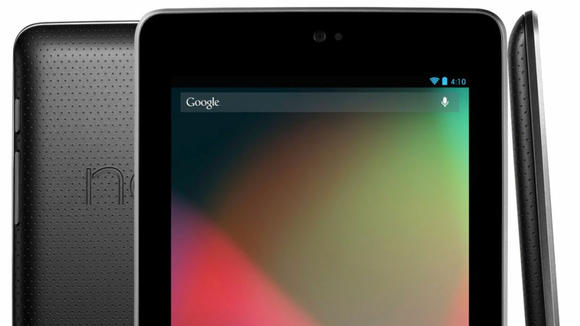AT&T offering contract-anchored deal on Nexus 7 now through Feb. 14
Is it convincing enough?

Sign up for breaking news, reviews, opinion, top tech deals, and more.
You are now subscribed
Your newsletter sign-up was successful
AT&T has a little deal it would like to throw your way, if you're interested in an HSPA+ Nexus 7.
From now until Feb. 14, those who purchase a Google-branded tab will receive a $100 bill credit from Ma Bell.
Unfortunately, a two-year contract is required though the package essentially whittles down the normally $299.99 32GB slate with Wi-Fi and HSPA+ to $199.99.
All customers have to do to take advantage of the offer is hop into an AT&T store or call a special 1-800 number.
Attack of the markdowns
While it would be nice to think that AT&T was offering customers one hundred big ones out of the goodness of its heart, more likely than not the carrier is trying to offload some inventory while grabbing some good will at a a low price point.
Last month, Best Buy loped the 16GB iPhone 5 down to $150 while Amazon cut the Kindle Fire HD 8.9 by an $50. The phone deal was for both AT&T and Verizon, but customers still had to sign on for that two-year service agreement.
And while it's not a discount or even available in the U.S. yet, Archos recently announced its $119 tablet, the Archos 70 Titanium, during CES 2013.
Sign up for breaking news, reviews, opinion, top tech deals, and more.
We're still waiting on that $99 Nexus from Asus, but the 70 Titanium straddles a very tantalizing line of bargain and promising specs.
Should Archos bring the 70 Titanium to the U.S., it could give other 7-inch slates a real run for the money, forcing more limited time offerings like this. And while deals may never take the sting out of a two-year contract, getting some money back never hurt anyone.

Michelle was previously a news editor at TechRadar, leading consumer tech news and reviews. Michelle is now a Content Strategist at Facebook. A versatile, highly effective content writer and skilled editor with a keen eye for detail, Michelle is a collaborative problem solver and covered everything from smartwatches and microprocessors to VR and self-driving cars.